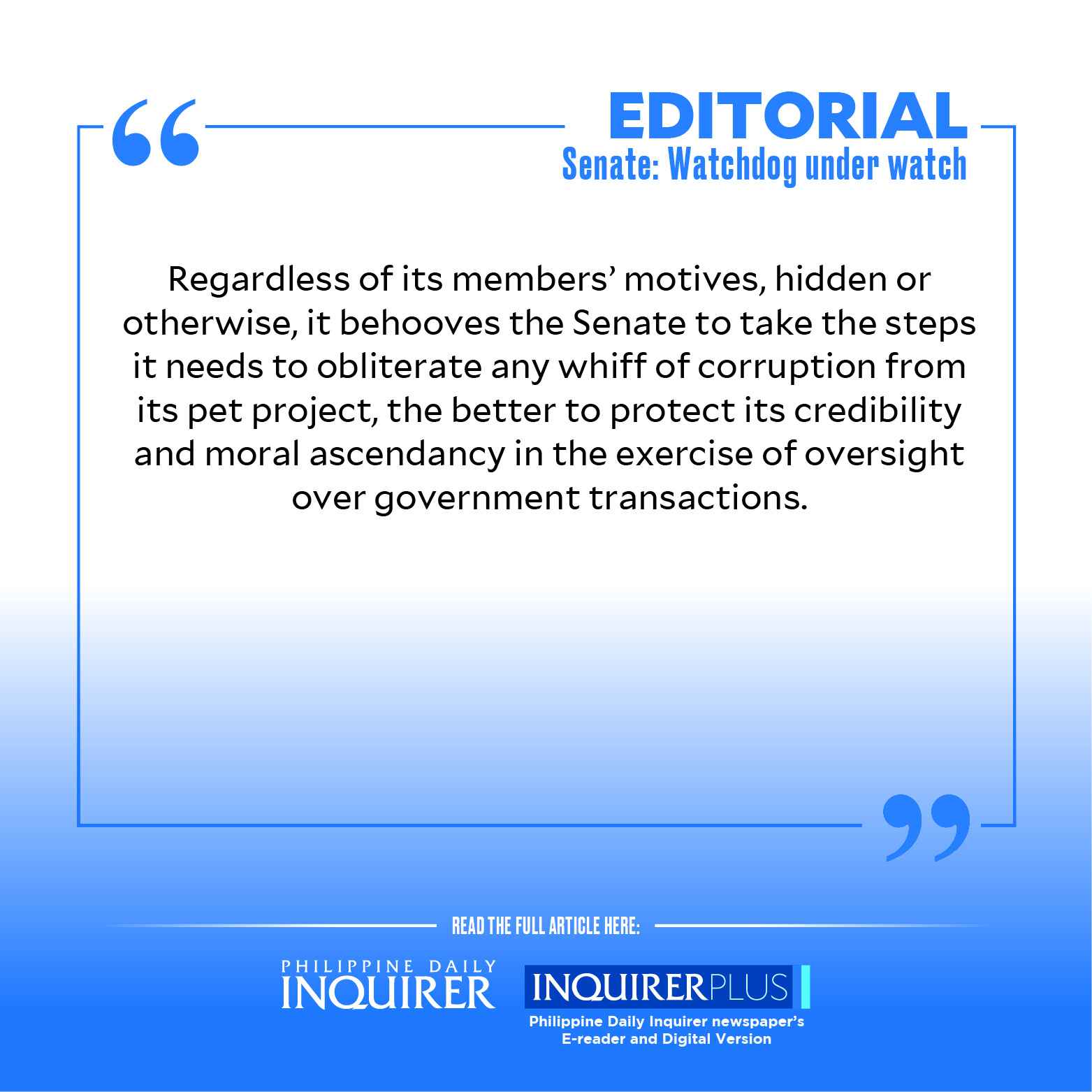For an institution that takes pride in being the watchdog of taxpayer money, it must be mortifying to the Senate to get a taste of its own medicine as it comes under scrutiny over the ballooning price of its future home.
Senate President Francis Escudero disclosed last week that the P8.9 billion starting budget to build the senators’ glitzy headquarters at Fort Bonifacio in Taguig City had soared to a staggering P23.3 billion. He ordered a review of the contract between the Department of Public Works and Highways (DPWH) and Hilmarc’s Construction Corp., a company that is no stranger to overpricing scandals.
The freshly installed Senate leader also called a halt to the construction, but Sen. Alan Peter Cayetano, the new chair of the Senate accounts committee, clarified that only its third phase was suspended while the first two would continue as planned.
Smallest price tag
Seven years ago, the 24-member Senate set the ball rolling on its transfer to a new address to save on rental expenses of P127 million a year for its current offices in the Government Service Insurance System compound in Pasay City.
In 2018, the senators picked a design proposed by urban planning firm Aecom Philippines—an ultramodern complex with the session hall at the center of four buildings shaped like rays of the sun—partly because it carried the smallest price tag, said then Sen. Panfilo Lacson, who headed the accounts panel.
“One major consideration why Aecom won over Henning Larsen, their nearest competitor, and the three other finalists is their project cost, which is the lowest at P4.58 billion (if I remember correctly),” Lacson said then, in response to speculations that the building would cost over P10 billion—an amount that sounds modest now in hindsight.
To learn that the original cost has since multiplied five-fold must come as a shock even to grizzled contractors in these parts, where, as the legend goes, up to 20 percent of construction spending gets lost to corruption. In January 2020, the think tank Reid Foundation estimated that the construction sector spends between 15 and 35 percent on “other costs of doing business”—the industry euphemism for payoffs to officials.
‘A paradox of sorts’
But it is disconcerting to realize that the Senate, long a champion of fiscal integrity and the self-appointed guardian of the budget, isn’t so immune to such shenanigans after all. Were it another agency, surely, senators would by now be crying for an investigation by its blue ribbon committee, like it did, once upon a time, to examine another Hilmarc’s project—the P2.3-billion Makati City Hall Parking Building II under the auspices of then Vice President Jejomar Binay Sr., and his son, then Makati Mayor Jejomar Erwin Binay Jr.
Even Lacson sounded faintly sardonic during the groundbreaking of the Senate building in March 2019, when he described the grant of award to Hilmarc’s as “a paradox of sorts,” but also a “chance to redeem their name because their name was sullied somewhat during the Senate hearings.”
Fat chance of that, though, in the wake of serious questions raised by Cayetano about the alleged “deviations and variations” made by both DPWH and Hilmarc’s to the project, causing delays and adding to the cost, on top of suspicions of contractual irregularity.
Some will remember that Cayetano was one of the senators who had raised a stink about Hilmarc’s Makati project, one reason for the enduring enmity between his family and the Binays. Now Binay’s daughter, Sen. Nancy Binay, who happened to be Cayetano’s predecessor as accounts chair, was quick to remind Escudero that he was among the senators who approved the project back in 2019.
Insisting there’s no truth to the claim of a huge jump in costs, she raised a valid point: Why air these complaints only now?
Political theater, fundraiser
Naturally, there were suggestions that politics had spurred Escudero’s move, coming on the heels of his victorious coup and only a year ahead of the 2025 midterm polls. Political historian and Inquirer columnist Manuel L. Quezon III, writing in this page last week, surmised that the hullabaloo could be a prelude to the triennial jockeying for “either fame or money come election time.”
Of course, two things can be true at once, and the possibility of anomaly in the Senate project and the odds of this being used as fodder for political theater or as a fundraiser in aid of election (or reelection) are not mutually exclusive.
But regardless of its members’ motives, hidden or otherwise, it behooves the Senate to take the steps it needs to obliterate any whiff of corruption from its pet project, the better to protect its credibility and moral ascendancy in the exercise of oversight over government transactions.
If it needs to crack the whip on DPWH and Hilmarc’s to prevent another tax-funded white elephant, it must do so now, for at stake is the people’s trust in the Senate as a watchdog of the nation’s coffers, a duty it performs imperfectly but indispensably.


